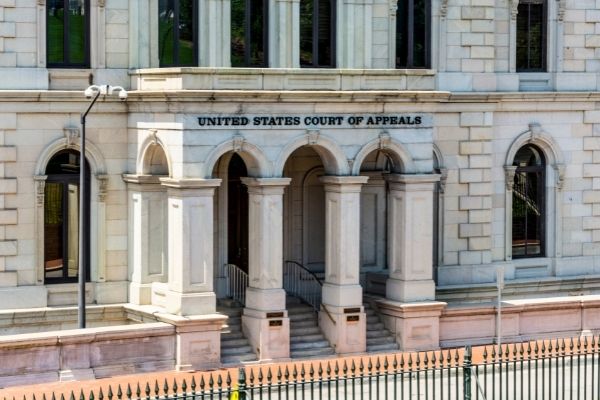Trusted Federal Crime Attorney: Comprehensive Defense Against Federal Allegations
Trusted Federal Crime Attorney: Comprehensive Defense Against Federal Allegations
Blog Article
Debunking the Process of Federal Appeals: What You Need to Know
Navigating the complex world of government allures can frequently look like passing through undiscovered waters for those not familiar with the procedure. Understanding the nuances of appellate court jurisdiction, the complexities of filing a notice of charm, providing an engaging short, and making an influential dental debate are essential parts that can significantly impact the outcome of a case. By unraveling the layers of complexity surrounding federal allures, people can obtain a more clear understanding right into the systems that regulate this important phase of the legal system.
Comprehending Federal Appeals Process
Exploring the detailed world of the government charms process unveils a structured and systematic journey through the judicial system. Federal allures offer as a crucial system for evaluating decisions made by reduced courts. Recognizing this procedure is vital for anybody involved in lawful procedures at the federal degree.
The procedure usually begins with a party disappointed with a lower court's ruling submitting a notice of allure. This causes an evaluation by a higher court, where a panel of courts evaluates the legal debates provided by both parties. Briefs detailing the legal thinking behind each celebration's position are sent, and oral debates may be heard to make clear complicated issues.
The appellate court's decision is based on a complete exam of the reduced court's proceedings and the arguments presented. The judges do not reexamine truths however focus on whether legal mistakes happened that impacted the lower court's decision. As soon as the appellate court gets to a decision, it can verify, turn around, remand, or change the reduced court's judgment, offering clarity and finality to the legal conflict. Recognizing this process is important for browsing the complexities of federal appeals properly.
Appellate Court Jurisdiction Explained
Appellate court jurisdiction refers to the extent of cases that a certain appellate court has the power to evaluate and decide upon. Unlike test courts that hear situations for the first time, appellate courts are limited to reviewing decisions made by reduced courts.
Appellate courts have jurisdiction over certain types of situations, generally those entailing legal errors, step-by-step issues, or concerns of regulation rather than valid disputes. The jurisdiction of appellate courts is usually outlined in laws and regulations that govern the court system. Comprehending appellate court territory is essential for events associated with the charms procedure as it identifies whether a situation is qualified for review and the degree to which the appellate court can interfere in the reduced court's choice.
Filing a Notice of Charm
The first action in commencing the federal charms procedure entails submitting a Notification of Appeal with the suitable appellate court. This vital record formally notifies the court and the other parties included in the situation that the appealing celebration plans to look for a testimonial of the reduced court's choice. Submitting a Notification of Allure is a rigorous procedural requirement that sets the appellate process in motion.
When preparing the Notice of Appeal, it is important to make sure compliance with the certain policies and guidelines of the appropriate appellate court. federal crime attorney. The record has to commonly consist of details such as the situation name, the lower court's name, the date of the judgment being appealed, and a concise statement indicating the premises for the allure

Rundown and Oral Disagreement
In the appellate procedure, presenting created briefs and engaging in dental arguments play critical duties in promoting for the appealing event's position before the appellate court. Briefs are thorough legal papers that outline the celebrations' debates, legal authorities, and analysis sustaining their positions. These composed entries give the court with a comprehensive understanding of the realities of the situation, the appropriate legislation, and why the appealing event believes the lower court's decision should be rescinded.
Adhering to the submission and evaluation of the briefs, dental debates offer the celebrations a possibility to more clarify their positions, deal with any type of inquiries the appellate courts might have, and highlight essential points from their composed briefs. Dental debates are an opportunity for the attorneys to persuade the judges through verbal advocacy and actions to queries from the bench.
Both the created briefs and dental debates are crucial components of the appellate process, allowing parties to present their case thoroughly and compellingly before the appellate court. - federal crime lawyer
Getting the Appellate Court Choice
Upon conclusion of oral disagreements and submission of written briefs, the next pivotal phase in the appellate process involves waiting for the crucial judgment from the appellate court. This period of anticipation can be full of a mix of anxiety and hope for events entailed in the allure. The appellate court's choice is usually provided in a written format and lays out the court's verdicts on the lawful problems presented, the thinking behind their choice, and the judgment made. The time structure for getting the appellate court's decision can vary, yet courts aim to offer timely resolutions. As soon as the decision is issued, events need to thoroughly review the court's judgment to comprehend the outcome and establish any type of further actions that may be necessary. Whether the appellate court attests, reverses, or remands the reduced court's decision, understanding the effects of the ruling is crucial for all celebrations involved in the appellate procedure. Quickly assessing and comprehending the appellate court's choice is important in browsing the next actions in the lawful procedures.
Final Thought
Comprehending the appellate court territory, filing a notification of allure, preparing briefs, and offering dental debates are all crucial parts of this procedure. Eventually, receiving the appellate court decision can offer clearness and resolution to legal disputes.
As we progress from understanding the federal allures procedure to exploring the ins and outs of appellate court jurisdiction, an essential aspect comes to light regarding the authority and limits of these greater courts in the lawful landscape. Appellate court jurisdiction refers to the scope of cases that a certain appellate court has the power to assess and make a decision upon. Unlike trial courts that listen to situations for the very first time, appellate courts are limited to assessing choices made by lower courts. Recognizing appellate court territory is important for parties entailed in the charms process as it establishes whether an instance is eligible for testimonial and the degree to which the appellate court can intervene in the reduced court's decision.

Report this page